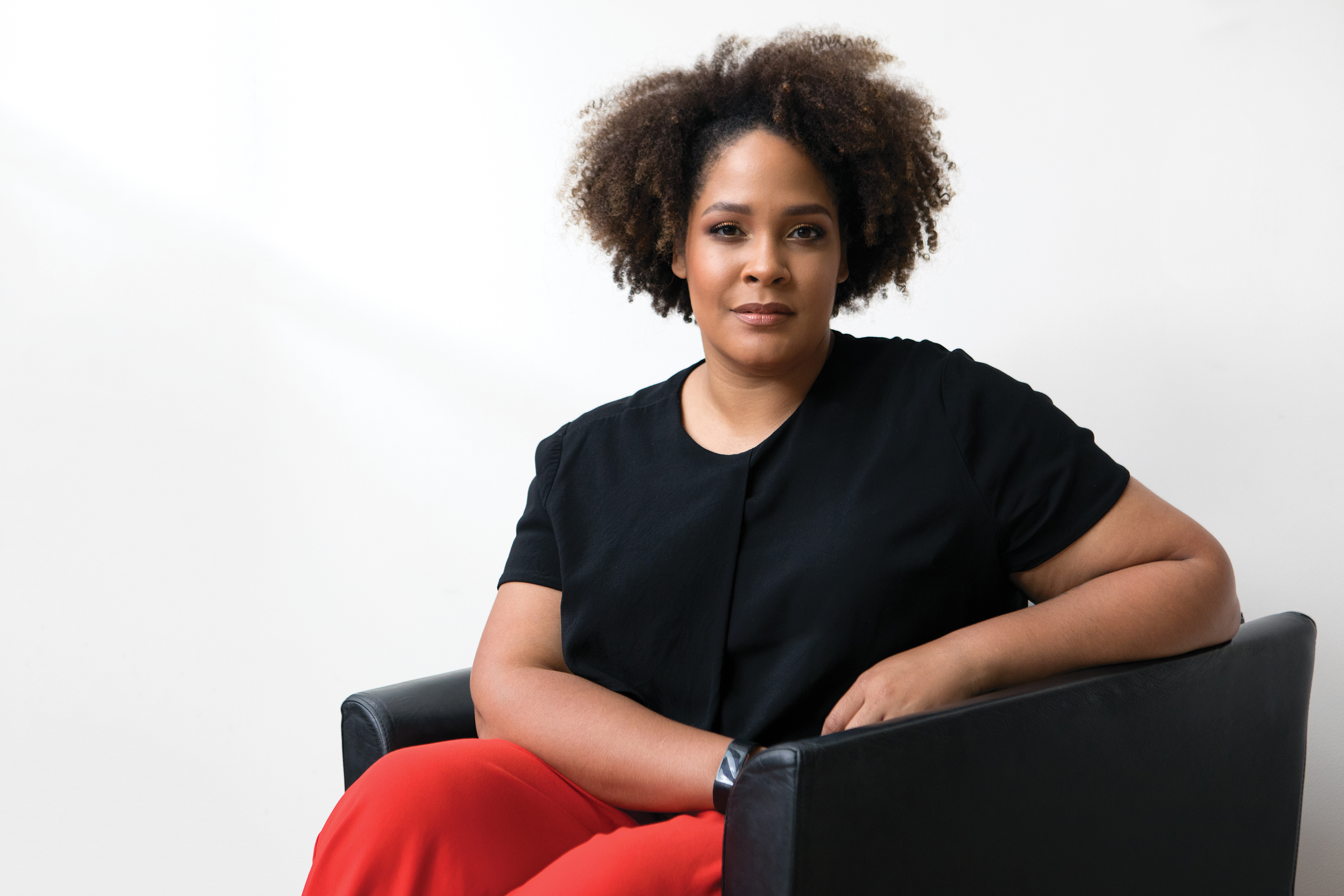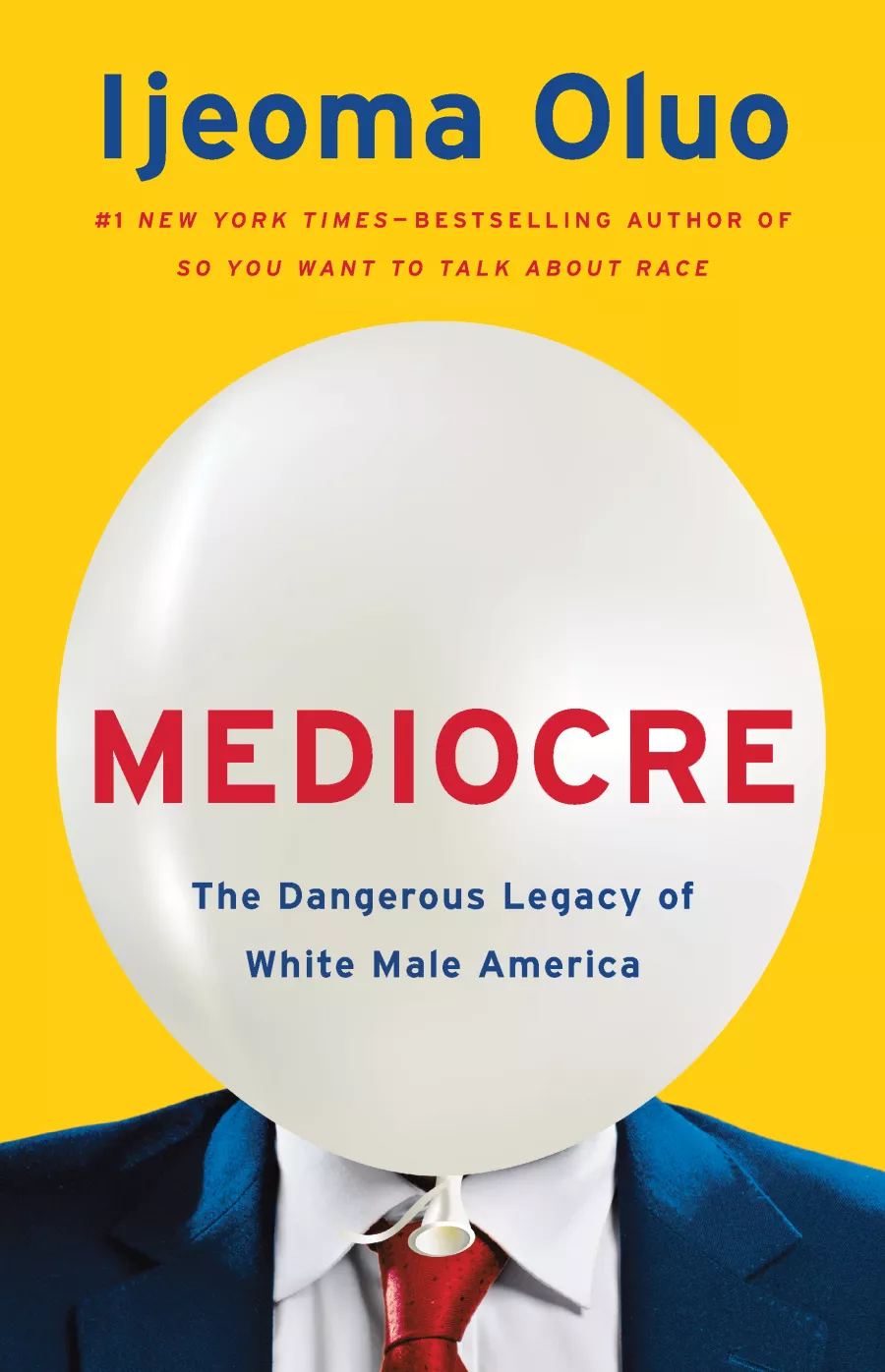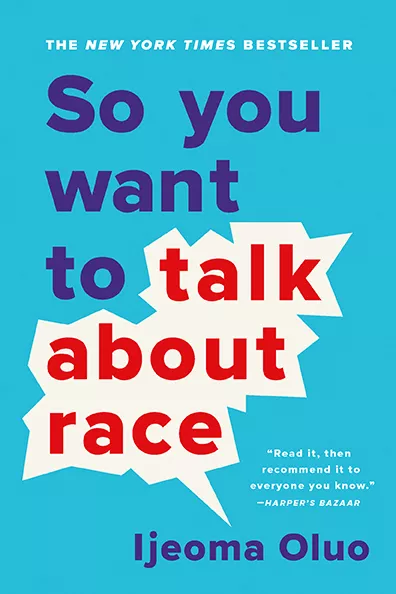Long before she was a noted author, talk show regular, self-described “internet yeller,” and one of the most influential Black voices in our culture, Ijeoma Oluo,’07, was a pregnant mother and 26-year-old political science undergraduate at Western.
Oluo didn’t know anyone who had attended Western, but she loved it when she saw the small class sizes, beautiful campus, and the AS Child Development Center, where her older son Malcolm attended.
“We’d be walking across campus, and I’d hear ‘Hi Malcolm!’ and I wouldn’t know the person at all. Malcolm loved it so much. This time is very present in my memories, and in his as well. Western was a magical time for me.” At 6 feet tall and pregnant, Oluo was a presence on campus.
“At 26, I filled this weird gap between undergraduates and grown students. I deeply remember professors and how lovely they were, how excited they were about what work students were doing, and excited to share in that work.” But it wasn’t at all a simple time.
“Although I loved my professors and I love learning, I was always the only Black student in every class I had,” she says. “I had to bring my race considerations into every class.” Navigating Western as a lone Black person in her classes wasn’t lonely—she was too busy to be lonely—but it was challenging.
“As a student, mom, and Black woman, campus wasn’t built for me.”
Her sister Jaq, who attended Western almost a decade later, had a similar experience.
“She went through all four years and got her master’s and did not have a single Black professor the entire time.” Following graduation, Oluo went to work in the tech sector and in advertising. As she navigated workplaces, she began to feel the pressure to work harder than her white colleagues, to be achingly polite in all circumstances, to code-switch to the point of breaking—and she began to write about it.
She had a food blog, but she began to turn it into a blog about the Black experience as a mother of two, a colleague in the workplace, and a resident of North Seattle. The writing spilled over into Facebook posts, tweets and essays in the Guardian, Esquire, and the Washington Post. She published her first book “So You Want to Talk About Race” in 2018. A sensation when it came out, it had a resurgence in 2020 after the murder of George Floyd, reaching No. 1 on the New York Times Bestseller list. Accessible and practical, “So You Want to Talk About Race” is both a user’s guide for white people who want to be better coworkers, friends and family members, and a deep, introspective look into the institutions and practices that feed systemic racism.
In her second book “Mediocre: The Dangerous Legacy of White Male America,” Oluo delves into the history of white supremacy from post-Reconstruction America to Buffalo Bill’s traveling show of Native Americans, to modern-day conflicts like militia movements, the pitfalls of white feminism, and her discomfort for the white left. The ultimate message in “Mediocre” is that patriarchy isn’t just bad for the people oppressed by it, it’s also bad for the white men and others who uphold it.
Even with her publishing success, the past few years have been particularly challenging for Oluo and her family: Her home was targeted in 2019 by white supremacists for a form of harassment known as “swatting” and she had to move for the safety of her family. In 2020 her new home caught fire and burned to the ground. Oluo and her fiancée escaped with only the clothes on their backs, only to learn the next day that Malcolm had COVID. Earlier this year, her mother grew ill and was hospitalized.
But there have been beautiful, bright moments, too. She is engaged to KEXP morning DJ Gabriel Teodros. She costars in “Thin Skin,” a film about her brother, jazz musician Ahamefule J. Oluo, which has received a distribution deal with Mutiny Pictures. The film was directed by Fairhaven College alumnus Charles Mudede, ’96, B.A., who cowrote it with Ahamefule, and Lindy West.
And, Oluo has a third book coming out. “Be A Revolution” will be an examination of creating change in systems of racism, and how everyday actions can be influential in challenging oppression. “It’s less about me, and more structured around the work people are doing to make change.”
Throughout her work, Oluo critiques policing, barriers in public education, and, yes, Western itself. But as with everything Ijeoma Oluo, the critique is both unvarnished and offered with deep love. She is, above all, someone who seeks to heal the hurt of racism in our world, not just point to it and call folks out. Like a good friend, she offers counsel on how we can all do better, to live up to the expectations set for us and be our best selves in the world.


